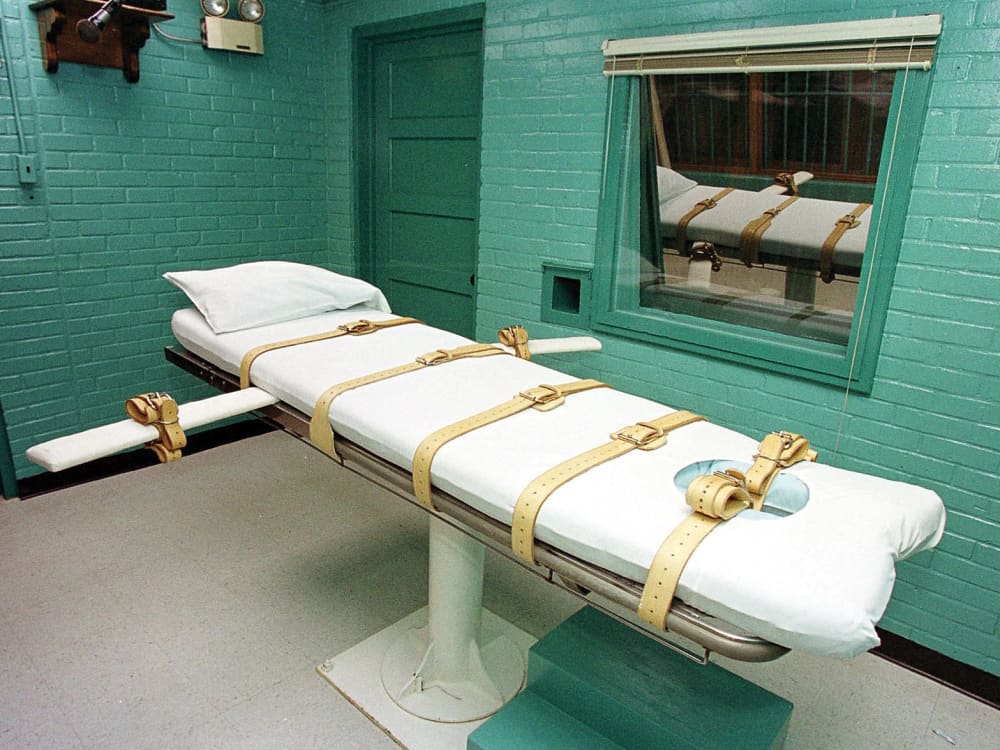No Blue Bell, just death
No last-minute stay for death row last meals: Texas officials reject offer offree meals

 Photo by Paul Buck/Britannica Online Encyclopedia
Photo by Paul Buck/Britannica Online Encyclopedia Lawrence Russell BrewerPhoto by Ron Jaap/Beaumont Enterprise.com
Lawrence Russell BrewerPhoto by Ron Jaap/Beaumont Enterprise.com
If you were going to make an argument against the practice of the death row "last meal," you couldn't do better than Lawrence Russell Brewer did.
Brewer was a white supremacist who, along with two friends, murdered James Byrd Jr. in Jasper in 1998 by chaining him by his ankles and dragging him behind their pickup truck for two miles. It was a modern-day lynching so brutal it got the attention of the entire country and was the impetus for both Texas and federal hate crimes laws.
Before he was executed last week, Brewer requested less of a last meal and more of a last buffet, including a triple-meat bacon cheeseburger, a meat-lover's pizza, a bowl of okra with ketchup, a pound of barbecue, half a loaf of bread, peanut butter fudge, a pint of Blue Bell ice cream and two chicken-fried steaks. When the meal arrived at 4 p.m., he told guards he wasn't hungry and declined the entire affair.
Strangely, those you might expect to protest the move—anti-capital punishment activists—have actually welcomed the change, with many saying the last meal tradition gave an undeserved feeling of lenience to the proceedings.
It was a final straw for Texas State Senator John Whitmire, chair of the criminal justice committee, who wrote prison officials that if the indulgent practice wasn't halted he would introduce legislation against it.
"Enough is enough," Whitmire wrote. "It is extremely inappropriate to give a person sentenced to death such a privilege. It's a privilege which the perpetrator did not provide to their victim." Prison officials complied, saying that from now on death row prisoners scheduled for execution will receive the same meal as other inmates.
Brian Price, who cooked and served over 200 last meals in his time as an inmate and wrote a book titled Meals To Die For about the experience, called the move "cold-hearted." Speaking to the Associated Press, Price has offered to prepare and pay for last meal requests in the future.
"It's not the cost but rather the concept we're moving away from," Texas Department of Criminal Justice spokeswoman Michelle Lyons told The Los Angeles Times, declining Price's offer.
Strangely, those you might expect to protest the move—anti-capital punishment activists—have actually welcomed the change, with many saying the last meal tradition gave an undeserved feeling of lenience to the proceedings.
"It's a minor thing compared with the fact that they are killing him," Brian Evans of Amnesty International told Reuters. "The cruelty of the whole process is much larger than whether you get to pick the last meal that you eat."
I can't help but think Evans has a point. If someone deserves to be put to death, why should they get a last meal of their choosing? And conversely, if death row inmates are entitled to a modicum of comfort or sympathy, shouldn't we reconsider killing them instead of just feeding them?

 Pilates is one of the many modalities on the schedule.Photo courtesy of Life Time
Pilates is one of the many modalities on the schedule.Photo courtesy of Life Time


 This giant sauna doubles as a social amenity.Photo courtesy of Life Time
This giant sauna doubles as a social amenity.Photo courtesy of Life Time The Life Time Lounge offers another place to hang out.Photo courtesy of Life Time
The Life Time Lounge offers another place to hang out.Photo courtesy of Life Time